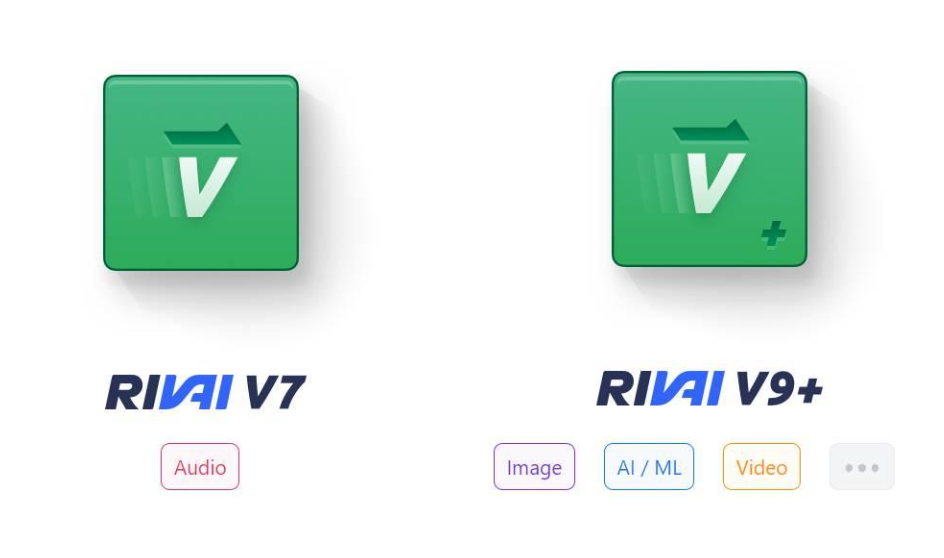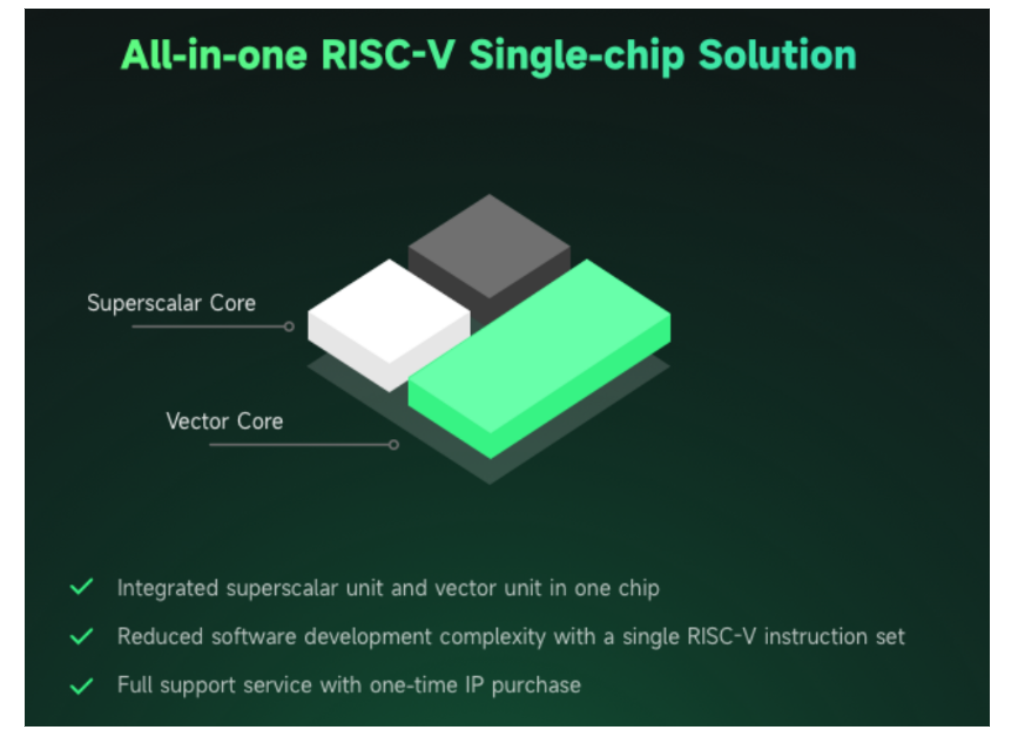
RiVAI Technologies has recently launched two new high-performance RISC-V vector IP series products: RiVAI V7 and RiVAI V9+, both with a customized RVV extension optimizing for energy-efficient DSP applications. Collaborating with industry-leading DSP partners, the recently announced processors are designed specifically to meet the computing needs of professional audio, video, AI and machine learning applications. The processor supports dozens of additional vector instructions on top of the standard RVV extension to enhance vector processing capabilities in fixed-point and to handle the computational requirements of high dynamic range AD/DA.

RiVAI RISC-V Vector DSP IP family
The new RiVAI V-series processors are an early application of RISC-V vector extensions in the high-performance DSP market. The new products are another example of the RISC-V architectural advantages over the traditional VLIW architecture, achieving more performance without increasing power consumption.
“Traditional VLIW DSP implementations have very limited parallelism, typically 3-4 parallel issue slots, and require complex compiler support. Moreover, they often also require a scalar processor in a different ISA (usually ARM), which further complicates the overall software complexity. On the contrary, we develop our DSP IP using a single RISC-V ISA with a modified RVV vector extension. This greatly simplifies the software and compiler support in addition to performance and power optimizations.” — Dr. Zhangxi Tan, founder and CEO of RiVAI Technology.
RiVAI V7 – All-in-one RISC-V Single-chip Solution
RiVAI V7 integrates superscalar unit and vector unit in one chip, and uses out-of-order vector architecture to achieve enhanced data parallelism and instruction-level parallelism at the same time. V7 has a 512-bit vector ALU and a 256-bit memory datapath. It supports 16/32/64 mixed-precision computation with simultaneous parallel memory access like most DSPs on the market. In addition, the V7 scalar design utilizes an out-of-order, multi-issue architecture with advanced branch prediction, data prefetch, and other advanced technologies to ensure a robust sequential performance.

To enhance signal-to-noise performance (SNR) for audio processing without increasing power consumptions, RiVAI’s V series employs a patented unified integer/fixed-point architecture. The popular DSP algorithms running on RiVAI V7 can produce a 3~4dB improvement over the competitor’s flagship product. In certain application scenarios, the SNR advantage of V7 can be as much as 160dB, which far exceeds human hearing’s dynamic range. This means V7 can capture much more subtle sound details and provide better sound quality, unlocking the power of high dynamic range (>120 dB) AD/DA, such as Analog ADAU7118.
At the same time, RiVAI V7 employs many low-power designs that reduce overall power, such as optimized data gating and clock gating design. As a result, without comprising on power consumptions, V7’s computation performance can be several times that of competing products. For instance, compared to the industry leading competitor’s flagship products, popular audio EQ algorithms’ performance on RiVAI V7 can be 1.5-4.7 times higher. The performance of typical noise cancellation algorithms can be 1.3-3.6 times higher. Using the example of the EQ algorithm, the energy efficiency of RiVAI V7 is 2.1 times higher, rendering a drastically improved battery life.

RiVAI V9+ – Tackling complex computing challenges in AI, Video, and Imaging
As an enhanced version of RiVAI V7, RiVAI V9+ is based on the 64-bit RISC-V architecture and supports RVV Extension 1.0 instruction set. It features the series’ early products’ design of integrating superscalar units and vector units on a single chip, but has been further optimized for AI, video, and image processing.
The execution bandwidth and vector register length of RiVAI V9+ can be configured up to 2048 bits. It supports a variety of data types including INT8, BF16, etc. Mainstream AI deep learning frameworks, such as PyTorch and Tensorflow Lite, are also supported. In addition, RiVAI V9+ supports matrix extension instructions and can run the Linux operating system.
RiVAI V9+ outperforms similar products on the market in key performance parameters. It can provide larger amounts of data/instruction parallelism and better execution efficiency, prepared for complex computing challenges in artificial intelligence, machine learning, video and imaging processing, etc.
Complete software development tools
Integrating and programming high-performance DSPs presents numerous challenges. To assist in software development, RiVAI provides a complete software toolchain – GCC/LLVM compiler, SDK (DSP library, math library, NN library, etc.), VSCode-based IDE, and GUI debugging programs.

Multi-core Debugger Integrated Gprof
“RISC-V has great potential in innovative high-performance parallel and scalar processor designs. The outstanding performance of RiVAI V7 and RiVAI V9+ spoke for RISC-V’s architectural advantage in high-performance applications. We are confident that RiVAI will continue provide advanced high-end RISC-V solutions meeting the increasing computation demands in emerging applications from edge computing to data centers.” —Dr. Zhangxi Tan. On November 10th, RiVAI will release a new high-performance RISC-V processor-RiVAI P600-for datacenter applications. To learn more about RiVAI and its latest products, please visite: http://rivai.ai, or contact: info@rivai.ai


